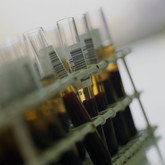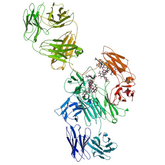Biosimilars
EC publishes biosimilar Q&A document for patients in 23 languages
On 29 November 2017, the European Commission (EC) published a patient-focused Questions and Answers (Q&A) document on biosimilar medicines aimed at patients and the general public.
Hospital specialists and pharmacists surveyed about biosimilars
Biological medicines are essential for many acute and chronic conditions, but their consumption differs widely among European countries [1, 2]. In contrast with the procedures for their approval [3], position papers from scientific societies suggest that biosimilars need to be tested in well-designed, randomized, controlled clinical trials, especially for extrapolation of indications [4, 5]. Nevertheless, switches with originators are becoming common and no serious adverse effects have been reported to date [6-8].
EMA accepts applications for pegfilgrastim and trastuzumab biosimilars from Biocon/Mylan
India-based biologicals specialist Biocon and US-based partner Mylan announced on 1 December 2017 that the applications for approval for their proposed pegfilgrastim (MYL‑1401H) and trastuzumab (MYL‑1401O) biosimilars have been accepted by the European Medicines Agency (EMA).
Positive phase III switching results for Celltrion’s infliximab biosimilar
Results of a phase III extension study have shown that Celltrion Healthcare’s (Celltrion) infliximab biosimilar (CT-P13) is shown to be comparable in efficacy and safety to Johnson & Johnson/Merck’s Remicade in switched inflammatory bowel disease patients, according to the South Korean biotechnology company.
EC approval for trastuzumab biosimilar Ontruzant
South Korean electronics giant Samsung and biotechnology company Biogen Idec’s joint venture Samsung Bioepis announced on 20 November 2017 that it had received European Commission (EC) approval for its biosimilar trastuzumab product Ontruzant (SB3).
Switching from reference infliximab to CT P13 in IBD patients
Argüelles-Arias and colleagues from the Hospital Universitario Virgen Macarena and the University of Seville in Spain carried out an observational study assessing the efficacy and safety of switching from Remicade to CT P13 in patients with inflammatory bowel disease (IBD) for up to 12 months [1].
South Africa approves first non-originator biological
South Africa’s Medicines Control Council (MCC) has approved the country’s first non-originator biological, filgrastim, from Teva Pharmaceutical Industries (Teva).
Biosimilars in oncology in Europe
In the European Union (EU), a legal framework for approving biosimilars was established back in 2003. This framework allows for biosimilars to be approved using an abbreviated pathway centrally via the European Medicines Agency (EMA) [1].
Biosimilars of palivizumab
Palivizumab is a humanized monoclonal antibody. It targets the fusion protein of respiratory syncytial virus (RSV) inhibiting its entry into the cell and thereby preventing infection. Palivizumab is therefore used in the prevention of RSV infections.
EMA approval for bevacizumab biosimilar Mvasi
The European Medicines Agency’s (EMA) Committee for Medicinal Products for Human Use (CHMP) announced on 10 November 2017 that it had recommended granting marketing authorization for the bevacizumab biosimilar Mvasi.













